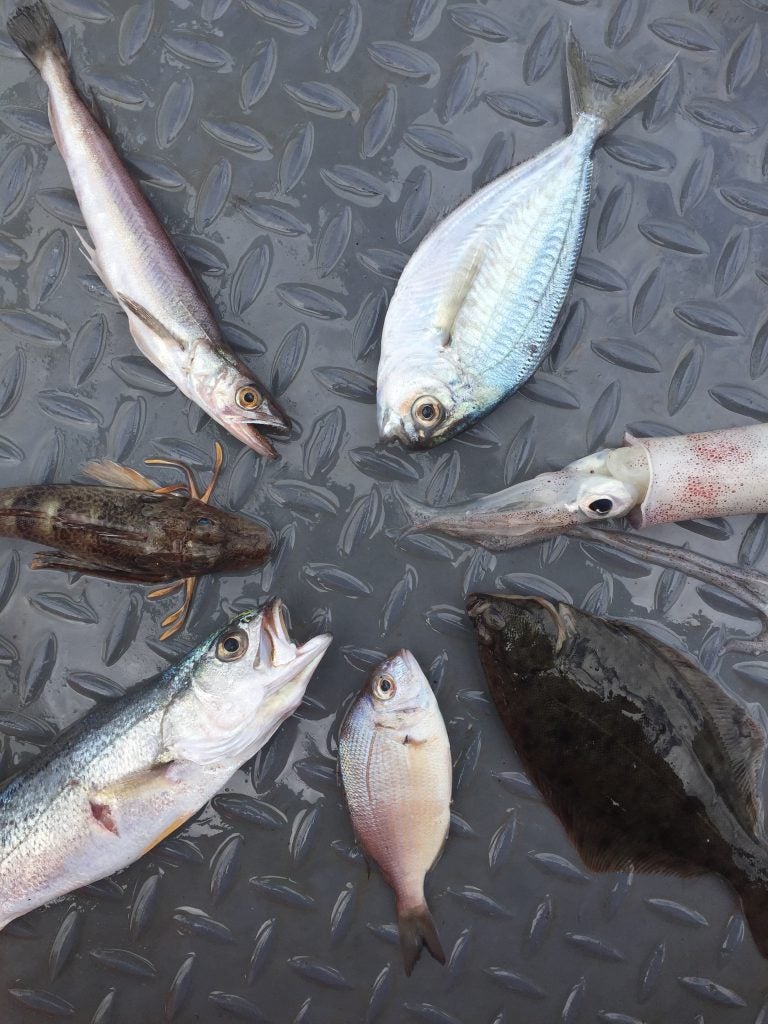
R/V CAP’N BERT at her berth in the Wickford Shipyard.
The University of Rhode Island Graduate School of Oceanography Fish Trawl Survey is a state funded survey of the bottom fish and invertebrate community in Narragansett Bay, Rhode Island. The survey was initiated in 1959 by Charles J. Fish, founder and director of the Narragansett Marine Laboratory, the precursor to the Graduate School of Oceanography. The Fish Trawl Survey was developed to quantify the seasonal occurrences of migratory fish populations, whereas scientists had previously relied on anecdotal information. Realizing its value as a documented record of long-term fluctuations in fish and invertebrate abundance, Fish continued the trawl survey until he retired in 1966. The trawl was then passed to H. Perry Jeffries, Graduate School of Oceanography professor emeritus, who maintained the survey for more than 30 years until he handed it over to Jeremy Collie in 1998. With over 59 years of data, the Graduate School of Oceanography Fish Trawl Survey is one of the longest continuous records of fish and invertebrate relative abundance in the world.
Data collection on the Graduate School of Oceanography Fish Trawl Survey has expanded over time and now includes: abundance and biomass of all fish and invertebrate species; surface and bottom temperature, dissolved oxygen, and salinity at each survey site; and total length measurements and sex determination of winter flounder, Pseudopleuronectes americanus. The long term data are stored in a database at the lab of Jeremy Collie and can be requested by e-mailing the Graduate School of Oceanography Fish Trawl Survey graduate student assistant.
Modified from Taylor, D.L, and J.S. Collie. 2000. Sampling the Bay Over the Long Term. Maritimes, volume 42, number 4, pages 7-9.

Typical early-summer species at Whale Rock: scup (Stenotomus chrysops), winter flounder (Pseudopleuronectes americanus), longfin inshore squid (Doryteuthis pealeii), butterfish (Peprilus triacanthus), silver hake (Merluccius bilinearis), Northern sea robin (Prionotus carolinus), and weakfish (Cynoscion regalis) . Photo credit J. Zottoli.
 Home
Home Browse
Browse Close
Close Events
Events Maps
Maps Email
Email Brightspace
Brightspace eCampus
eCampus


